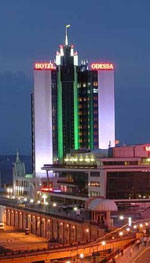Mr Cogito Is Mailed A Press Release Inviting Him To Purchase A Book On Modern Architecture
enduring innocence:
global architecture and its political masquerades
by keller easterling
"Where is the voice of architecture in the discourse of globalization? Pretty much missing... This is a world where logistics, spin, and management style count more than window placements or landscaping, and where time zones, labor costs, and pools of satellite microwaves may be much more important than location, lighting, or high concept design. This is a gap that has to be closed ... Easterling is not interested in the Bilbaos, Disneys, and Pradas of global development... In Enduring Innocence, Easterling tells the stories of outlaw "spatial products" -- resorts, information technology campuses, retail chains, golf courses, ports, and other hybrid spaces that exist outside normal constituencies and jurisdictions -- in difficult political situations around the world. These spaces -- familiar commercial formulas of retail, business, and trade --aspire to be worlds unto themselves, self-reflexive and innocent of politics. But as Easterling shows, in reality these enclaves can become political pawns and objects of contention. Jurisdictionally ambiguous, they are imbued with myths, desires, and symbolic capital. Their hilarious and dangerous masquerades often mix quite easily with the cunning of political platforms. Easterling argues that the study of such "real estate cocktails" provides vivid evidence of the market's weakness, resilience, or violence.
Enduring Innocence collects six stories of spatial products and their political predicaments: cruise ship tourism in North Korea; high-tech agricultural formations in Spain (which have reignited labor wars and piracy in the Mediterranean); hyperbolic forms of sovereignty in commercial and spiritual organizations shared by gurus and golf celebrities; automated global ports; microwave urbanism in South Asian IT enclaves; and a global industry of building demolition that suggests urban warfare. These regimes of nonnational sovereignty, writes Easterling, "move around the world like weather fronts"; she focuses not on their blending -- their global connectivity -- but on their segregation and the cultural collisions that ensue.
Enduring Innocence resists the dream of one globally legible world found in many architectural discourses on globalization. Instead, Easterling's consideration of these segregated worlds provides new tools for practitioners sensitive to the political composition of urban landscapes....
This is a special kind of storytelling, not from the literature of architecture, and not set in the abled financial centers of New York, London, Tokyo, or Paris.
Relying on blog wisdom [sic], web chatter, global newswires, and field work, each tale is a testbed for confronting a constellation of global issues."
Keller Easterling is Assistant Professor of Architecture at Yale University.
Source: MIT Press News Release and MITPress Web-site (adapted).
http://mitpress.mit.edu/catalog/item/default.asp?ttype=2&tid=10597

Combination passenger port facility and luxury hotel (now closed), Odesa (Odessa), Ukraine.
Photo credit: www.epinions.com With thanks.
global architecture and its political masquerades
by keller easterling
"Where is the voice of architecture in the discourse of globalization? Pretty much missing... This is a world where logistics, spin, and management style count more than window placements or landscaping, and where time zones, labor costs, and pools of satellite microwaves may be much more important than location, lighting, or high concept design. This is a gap that has to be closed ... Easterling is not interested in the Bilbaos, Disneys, and Pradas of global development... In Enduring Innocence, Easterling tells the stories of outlaw "spatial products" -- resorts, information technology campuses, retail chains, golf courses, ports, and other hybrid spaces that exist outside normal constituencies and jurisdictions -- in difficult political situations around the world. These spaces -- familiar commercial formulas of retail, business, and trade --aspire to be worlds unto themselves, self-reflexive and innocent of politics. But as Easterling shows, in reality these enclaves can become political pawns and objects of contention. Jurisdictionally ambiguous, they are imbued with myths, desires, and symbolic capital. Their hilarious and dangerous masquerades often mix quite easily with the cunning of political platforms. Easterling argues that the study of such "real estate cocktails" provides vivid evidence of the market's weakness, resilience, or violence.
Enduring Innocence collects six stories of spatial products and their political predicaments: cruise ship tourism in North Korea; high-tech agricultural formations in Spain (which have reignited labor wars and piracy in the Mediterranean); hyperbolic forms of sovereignty in commercial and spiritual organizations shared by gurus and golf celebrities; automated global ports; microwave urbanism in South Asian IT enclaves; and a global industry of building demolition that suggests urban warfare. These regimes of nonnational sovereignty, writes Easterling, "move around the world like weather fronts"; she focuses not on their blending -- their global connectivity -- but on their segregation and the cultural collisions that ensue.
Enduring Innocence resists the dream of one globally legible world found in many architectural discourses on globalization. Instead, Easterling's consideration of these segregated worlds provides new tools for practitioners sensitive to the political composition of urban landscapes....
This is a special kind of storytelling, not from the literature of architecture, and not set in the abled financial centers of New York, London, Tokyo, or Paris.
Relying on blog wisdom [sic], web chatter, global newswires, and field work, each tale is a testbed for confronting a constellation of global issues."
Keller Easterling is Assistant Professor of Architecture at Yale University.
Source: MIT Press News Release and MITPress Web-site (adapted).
http://mitpress.mit.edu/catalog/item/default.asp?ttype=2&tid=10597

Combination passenger port facility and luxury hotel (now closed), Odesa (Odessa), Ukraine.
Photo credit: www.epinions.com With thanks.


0 Comments:
Post a Comment
<< Home